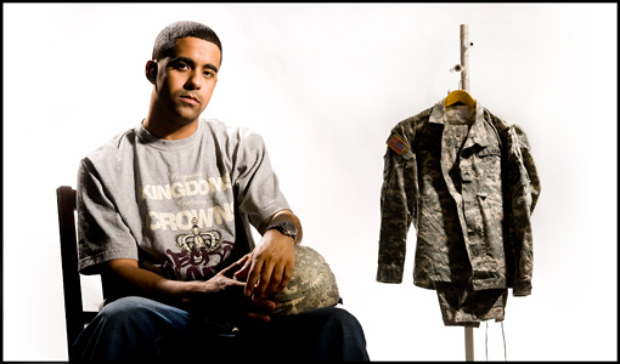On Sept. 11, 2001, four U.S. commercial passenger jets were hijacked. Two of the planes were deliberately flown into the World Trade Center towers in New York City. The third struck the Pentagon building near Washington, D.C. The fourth crashed into a field near Shanksville, Pa. Nearly 3,000 people – from 80 different countries – died as a result of the unprovoked attacks.
While the country mourned, plans were made to strike back at al-Qaeda, the terrorist organization responsible for the hijackings. U.S. forces first launched attacks at targets in Afghanistan. Then, on March 20, 2003, President George W. Bush ordered U.S. military forces to launch “attacks of opportunity” on specific targets in Iraq. The United States has been at war ever since.
While the motivation to go to war and the strategy for ending it are open to scrutiny and debate, the human cost of this war is irrefutable:
• More than 4,000 U.S. soldiers have died
• Nearly 30,000 U.S. soldiers have been wounded
• 155,000 U.S. troops are in Iraq
• There are 4.5 million Iraqi refugees
• Between 90,000 and 600,000 Iraqi civilians have died
(Note: The casualties figures above are difficult to measure)
Despite our physical distance from the Middle East, the impact of the Iraq War has touched many of us at St. Thomas. In this issue of St. Thomas magazine you will read about some of the unexpected ways our community is connected to the war.
We were saddened to learn about the death of John Rigo ’75, who was working in World Trade Center Tower #1 at the time of its collapse on 9/11. (Story here)
The series of unimaginable attacks on that day influenced and precipitated many of the military plans that would follow. Tens of thousands of U.S. military personnel were activated and sent to Iraq, Afghanistan and other strategic locations. When these military veterans returned to civilian life, many of them were ready to pursue an education. As a result, St. Thomas has more than 60 veterans taking classes on campus. You will meet a number of these students in "War and Peace and Tommies." (Story here)
Another veteran with St. Thomas ties, Father Tim Vakoc, is back in Minnesota recovering from a severe skull injury suffered as a result of a roadside bomb near Mosul, Iraq, in 2004. Vakoc, an alumnus of the St. Paul Seminary School of Divinity, continues to inspire those around him. (Story here)
Not unexpectedly, perspectives on the Iraq War vary greatly on a college campus. We asked Scott Wright and Kenneth Kemp – faculty members who have written extensively about the Catholic response to war – to provide but two of the myriad opinions on this spectrum. Read Wright's response on pacificism (story here) and Kemp's view of Iraq as a "Just War" (story here).
And lastly, we interviewed a number of St. Thomas Muslim students to learn about their experiences on a Catholic campus since 9/11. (Story here)
As we reflect on the last five years, it is clear that war is never fought in isolation. The reminders are ever-present in our community.
– Brian C. Brown ’98 M.A., editor





